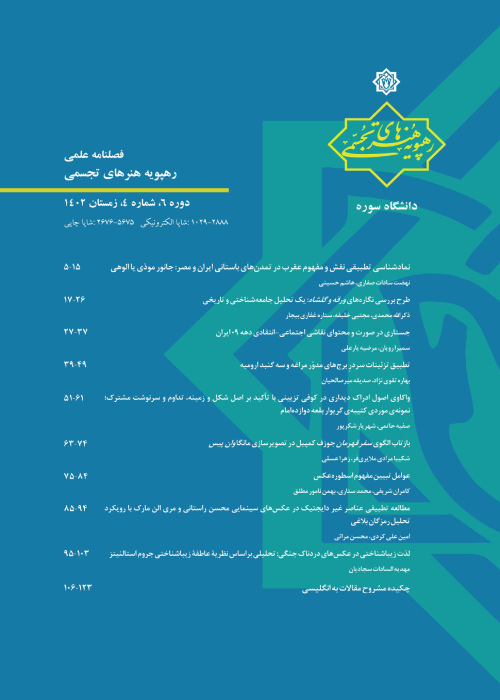Analytical S tudy on ‘The end of representation of reality’ in Pop art By adopting Baudrillard’s pos tmodern approach
Representation is a prominent theory about the essence of art. Archaic forms of this theory could be traced to Platonic texts concerning the relation of art to reality. It might seem that any work of art would inevitably be an imitation of nature. Despite its deficiency, this notion has gradually become the dominant approach to read art, nevertheless, by the invention of camera, the mechanical reproduction of reality was made possible in modern time and it challenged the old notion by transformation of representative essence of art. The direct effect of this crisis on painting, which had always been considered a representational art, was its emancipation from the confines of representing the material reality, since photography, thanks to its mechanical nature, offered such realis tic images of the material world that no painter could compete with. As a result, pictorial imitation declined in modernis t painting and exploring new ways of seeing the world and revealing the authentic truth became the main concern; something that lead modernis t painting to move further away from representing tangible reality. This incident resulted in modern painting’s refusal of representing the objective reality and, moreover, the emergence of new s tyles, which avoided any depiction or simulation of familiar objects. Also the emergence of new printing technologies like digital exacerbated the crisis of representation in the age of pos tmodernism and caused the appearance of challenging discourses like the idea of ending of representation sys tem by Baudrillard. However, in the very period where changing the representational nature of the arts and abolishing the representational tradition was under discussion, painting saw the formation of the pop art movement, and the elements of concrete reality returned to canvases through the works of such artis ts as Jasper Johns and Warhol, which seemingly sugges ted the return of painting to its representational tradition. Therefore, the ques tion then arises, Could the Pop art be the return of painting to its representative tradition? Hence, this research used written and electronic sources, analysis of qualitative data, and considered the Baudrillard’s thoughts on the ending of representation sys tem to demons trate how Pop art helped the subs titution of the logic of reproducing the reality for representing it. This research is premised on the idea that Pop art painting uses the logic of reproducing the symbol of reality foundation, and has no representative essence. Eventually, the article will firs t address the change in the nature of the arts in the modern era and then, by analyzing and describing the views of Baudrillard on the end of the representational tradition, explain how it was represented in pop art. Finally, The current research showed that while the movement chose concrete reality and familiar components of everyday social life as its subject matter, it did not aim by any means to reveal the true nature of things to us; it replaced, in perfect agreement with the theoretical discourse of the pos t-modern era, the representation of reality with the reproduction of the mark of its essence by recognizing the reproducible nature of the arts.
- حق عضویت دریافتی صرف حمایت از نشریات عضو و نگهداری، تکمیل و توسعه مگیران میشود.
- پرداخت حق اشتراک و دانلود مقالات اجازه بازنشر آن در سایر رسانههای چاپی و دیجیتال را به کاربر نمیدهد.


